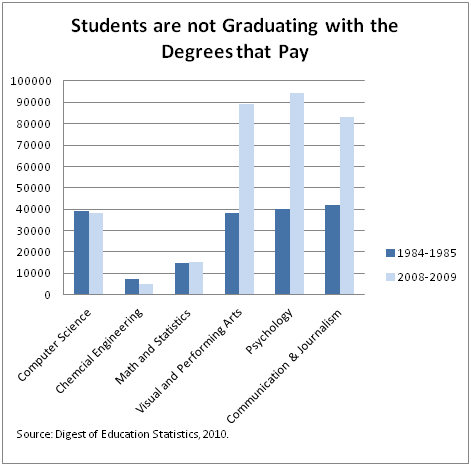I believe that is the essence of the problem that young students face, or wont face. My daughter is the perfect example. She has no concept of how difficult it will be to pay $20 k off on a 30k job. I set her up a plan, that would get her out of college debt free. My ex and I are willing two pay 2 years university, and cover her 2 years at juco. She only wants to go this year at juco and go three years at the university and borrow the money herself. Im hoping she gives in, because she has no concept of taxes, and debt right now. I feel it is at least my obligation to try to save her from herself. Besides it isnt like she is a social creature anyways preferring to stay at home. Im sure she can learn how to binge drink her junior and senior year, without starting next year.
Mulliagan I agree with your philosophy and attempts here. I've tried many times to save my own from themselves. Sometimes it works ..sometimes it doesn't.
I think one of the biggest wake up calls for the current young generation (18 to 23) was watching their parents get laid off. From some of my limited obervations, the children of otherwise upper middle class parents who had every financial need/want ( little and big) suddenly became more responsible...and wanted to help their family by making better decisions and choices that affected the financial health of the family.
Also...I'm not reading any more articles about the problems with generation x. Remember them? There were/are the generation who dictated to their employers want THEY wanted instead of the other way around.
We had a generation X nephew who after traveling the world for about 6 years post college came back and suddenly wanted a job in the family business. Not only did he want it, he expected it. After many conversations it was clear to "most of us" he wanted a soft landing. He was making demands about what he wanted rather than the other way around and without a true understanding of what he was NOT bringing to the table. The rest of us want/ed him to work for another company for 5 years. Play by someone else's rules first. Be managed by someone else first. He had worked one Christmas season answering the phones and seemingly thought this entitled him to skip the rest of the learning curve....and go right into being a Sales Manager with no sales experience of any kind. Ha! He was NOT brought on board. At least not yet. His mother is still trying.
Didn't mean to hijack the thread...but one thing led to another
Last edited:


